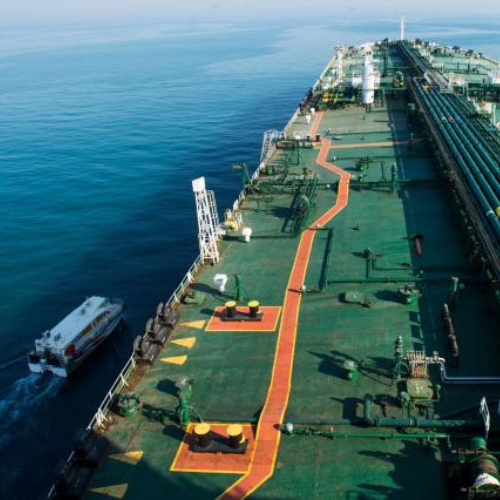Recent sanctions imposed by the United States have caused significant disruptions to the flow of Iranian crude oil to China, a major customer for the country. According a market analytics company, the sanctions are affecting how Iranian oil is transported and making it harder for Chinese buyers to get their shipments on time. This situation has been made even more complicated by restrictions on tankers, or ships, that are used to carry the crude oil.
Sanctions on Tankers Causing Delays in Oil Shipments
The problem started when the US government added over 190 Very Large Crude Carriers (VLCCs), or large oil tankers, to a sanctions list. These vessels are vital for transporting crude oil around the world, and many of them are used to carry Iranian oil. When these tankers are placed on the sanctions list, they are blocked from accessing US financial systems, meaning they cannot make payments or use certain services. This action has caused problems for Iran’s ability to export its oil, especially to China, which is the biggest customer for Iranian crude.
Due to these restrictions, some shipments of Iranian oil, particularly those scheduled for November, have not been delivered as planned. These delays were also seen in some October shipments, meaning that the oil that China was expecting is not arriving on time. In addition, some independent Chinese refiners—small oil companies in China that are allowed to import oil from different countries—are finding it difficult to use all their import quotas. These companies were recently given more freedom to buy oil from countries like Iran, but the disruptions are making it hard for them to take full advantage of these new allowances.
Yellen Warns of New Sanctions on China and Russia’s Oil ‘Dark Fleet
Chinese Buyers Seeking Non-Sanctioned Tankers
As a result of the US sanctions, Chinese buyers are increasingly looking for ways to avoid using the sanctioned tankers. They are now insisting that the oil they buy from Iran be delivered by vessels that are not on the sanctions list. This is because Chinese companies want to avoid being affected by US restrictions. While this may seem like a simple solution, it’s not easy to find enough tankers that are both available and free of sanctions.
The situation has led to a slowdown in shipments of Iranian oil to China, especially to the Shandong ports in China, which are some of the main places where Iranian oil is delivered. These ports have seen fewer Iranian ships arriving due to the issues with tanker sanctions. Without enough non-sanctioned tankers, the flow of Iranian crude to China is being delayed, creating uncertainty for buyers who rely on regular oil deliveries.
The Effects on Iran and China’s Oil Trade
The US sanctions on tankers are having a direct impact on the oil trade between Iran and China. For Iran, oil exports to China are a crucial source of income. The country relies heavily on these sales to fund its economy. So, any disruptions in the flow of oil mean less revenue for the Iranian government and companies. China, on the other hand, is one of the world’s largest consumers of oil, and Iranian crude plays an important role in its energy needs. Any interruptions in supply can lead to challenges in keeping its refineries running smoothly.
The sanctions also highlight the ongoing tension between the US and Iran. These restrictions are part of a larger set of US measures aimed at limiting Iran’s ability to earn money from oil exports. While China has continued to buy oil from Iran despite the sanctions, the new tanker restrictions are making it harder for Chinese buyers to manage their purchases. This is creating a tough situation for both countries and raises questions about the future of their oil trade.


